Coffee
How to submit an article:
- Registered users can submit any published journal article that has a unique DOI (Digital Object Identifier) name or link to Research Hub.
- For example, you can paste the full DOI link:
https://doi.org/10.1109/5.771073or just the DOI name:10.1109/5.771073into the field above and click submit. - The person who is first to submit a valid article to Research Hub will forever be credited for it, and every article submission earns you +6 Research Points.
Related Topics
Published research studies are articles that present the findings of original research that has undergone a peer-review process and has been made publicly available in scholarly journals, books or other media.
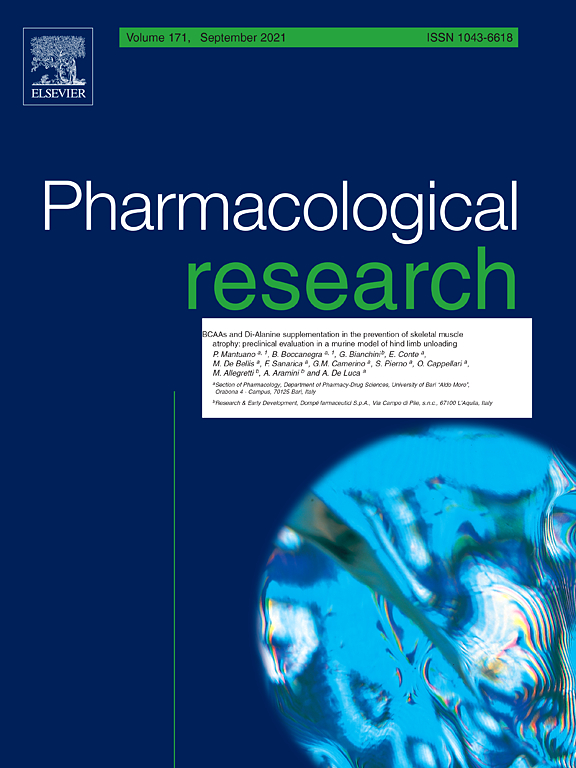
Coffee or tea: Anti-inflammatory properties in the context of atherosclerotic cardiovascular disease prevention
2023 Jan Pharmacological Research Surma S, Sahebkar A, Banach M
Review Article Meta-Analysis Cardiovascular Disease Coffee Anti-Inflammatory TeaConsumption of tea and coffee may possibly provide anti-inflammatory effects, contributing to reduced cardiovascular risk and mortality.
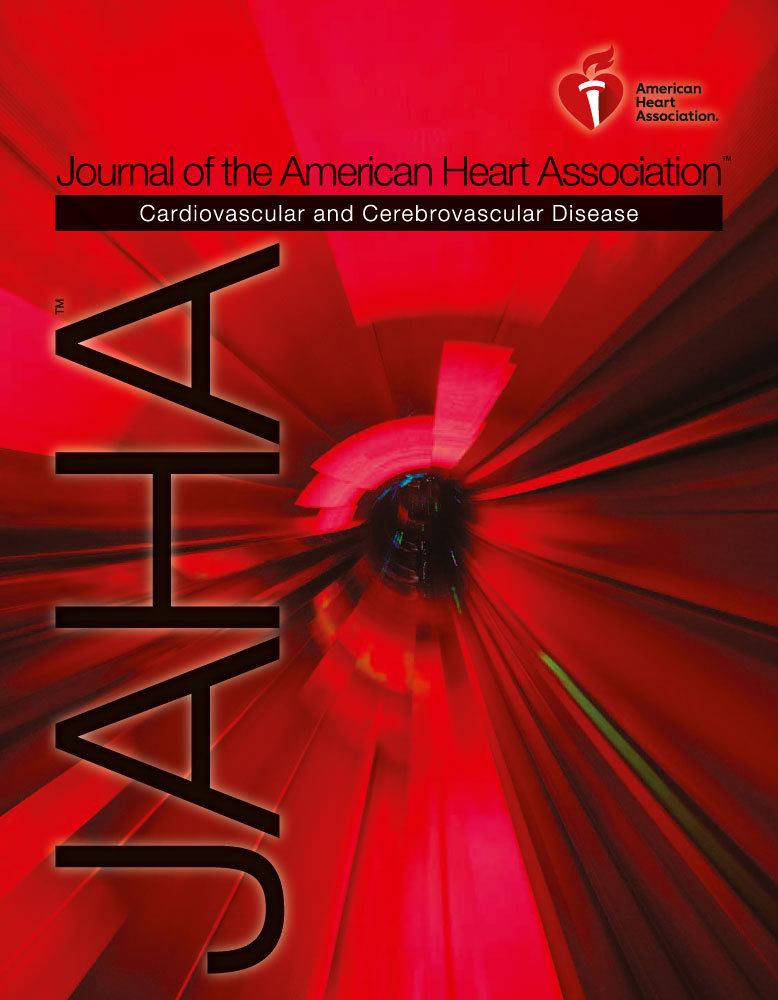
Coffee and Green Tea Consumption and Cardiovascular Disease Mortality Among People With and Without Hypertension
2023 Jan 17 Journal of the American Heart Association Teramoto M, Yamagishi K, Muraki I, Tamakoshi A, Iso H
Cohort Study High Blood Pressure Green Tea CoffeeHeavy coffee consumption increases the risk of cardiovascular disease mortality in individuals with severe hypertension, while green tea consumption does not.
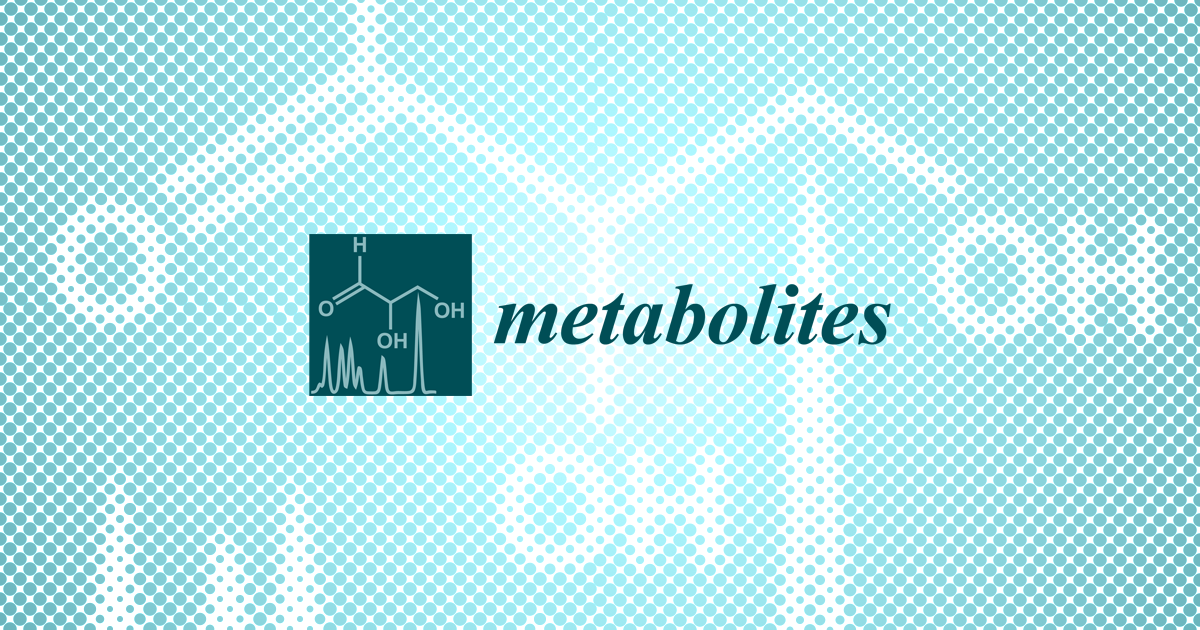
Sugar-Sweetened Coffee Intake and Blood Glucose Management in Korean Patients with Diabetes Mellitus
2022 Nov 25 Metabolites Yoo H, Park K
Cohort Study Sugar HbA1C Coffee Blood SugarFrequent consumption of sugar-sweetened coffee can adversely affect blood sugar control in patients with diabetes mellitus in Korea.
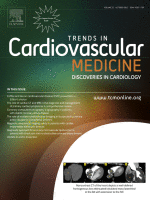
Coffee and tea on cardiovascular disease (CVD) prevention
2022 Oct Trends in Cardiovascular Medicine Chieng D, Kistler PM
Review Article Cardiovascular Disease CoffeeConsuming 2-3 cups of coffee daily can help prevent cardiovascular disease and drinking at least 3 cups of green tea has similar benefits.

Caffeine, Coffee, Tea and Risk of Rheumatoid Arthritis: Systematic Review and Dose-Response Meta-analysis of Prospective Cohort Studies
2022 Feb 10 Frontiers in Nutrition Asoudeh F, Dashti F, Jayedi A, Hemmati A, Fadel A, Mohammadi H
Systematic Review Meta-Analysis Rheumatoid Arthritis CoffeeHigher consumption of coffee and specifically decaffeinated coffee raises the risk of rheumatoid arthritis, while caffeinated coffee, tea and caffeine intake doesn't.
Research insights are moderated by the Research Hub team and offer an at-a-glance overview of interesting research findings.

2023 Journal of the American Heart Association
Heavy coffee consumption increases the risk of cardiovascular disease mortality in individuals with severe hypertension, while green tea consumption does not.
Cohort Study Green Tea High Blood Pressure
Coffee and Green Tea Consumption and Cardiovascular Disease Mortality Among People With and Without Hypertension
Teramoto M, Yamagishi K, Muraki I, Tamakoshi A, Iso H

2023 Pharmacological Research
Consumption of tea and coffee may possibly provide anti-inflammatory effects, contributing to reduced cardiovascular risk and mortality.
Review Article Anti-Inflammatory Cardiovascular Disease Tea
Coffee or tea: Anti-inflammatory properties in the context of atherosclerotic cardiovascular disease prevention
Surma S, Sahebkar A, Banach M

2022 Metabolites
Frequent consumption of sugar-sweetened coffee can adversely affect blood sugar control in patients with diabetes mellitus in Korea.
Cohort Study Blood Sugar HbA1C Sugar
Sugar-Sweetened Coffee Intake and Blood Glucose Management in Korean Patients with Diabetes Mellitus
Yoo H, Park K

2022 Trends in Cardiovascular Medicine
Consuming 2-3 cups of coffee daily can help prevent cardiovascular disease and drinking at least 3 cups of green tea has similar benefits.
Review Article Cardiovascular Disease
Coffee and tea on cardiovascular disease (CVD) prevention
Chieng D, Kistler PM

2022 Frontiers in Nutrition
Higher consumption of coffee and specifically decaffeinated coffee raises the risk of rheumatoid arthritis, while caffeinated coffee, tea and caffeine intake doesn't.
Systematic Review Rheumatoid Arthritis
Caffeine, Coffee, Tea and Risk of Rheumatoid Arthritis: Systematic Review and Dose-Response Meta-analysis of Prospective Cohort Studies
Asoudeh F, Dashti F, Jayedi A, Hemmati A, Fadel A, Mohammadi H
Review Articles
Review articles summarise and critically evaluate the current state of research on a specific topic or field by synthesising multiple primary research studies.

Coffee or tea: Anti-inflammatory properties in the context of atherosclerotic cardiovascular disease prevention
2023 Jan Pharmacological Research Surma S, Sahebkar A, Banach M
Review Article Meta-Analysis Cardiovascular Disease Coffee Anti-Inflammatory TeaConsumption of tea and coffee may possibly provide anti-inflammatory effects, contributing to reduced cardiovascular risk and mortality.

Coffee and tea on cardiovascular disease (CVD) prevention
2022 Oct Trends in Cardiovascular Medicine Chieng D, Kistler PM
Review Article Cardiovascular Disease CoffeeConsuming 2-3 cups of coffee daily can help prevent cardiovascular disease and drinking at least 3 cups of green tea has similar benefits.

Caffeine, Coffee, Tea and Risk of Rheumatoid Arthritis: Systematic Review and Dose-Response Meta-analysis of Prospective Cohort Studies
2022 Feb 10 Frontiers in Nutrition Asoudeh F, Dashti F, Jayedi A, Hemmati A, Fadel A, Mohammadi H
Systematic Review Meta-Analysis Rheumatoid Arthritis CoffeeHigher consumption of coffee and specifically decaffeinated coffee raises the risk of rheumatoid arthritis, while caffeinated coffee, tea and caffeine intake doesn't.
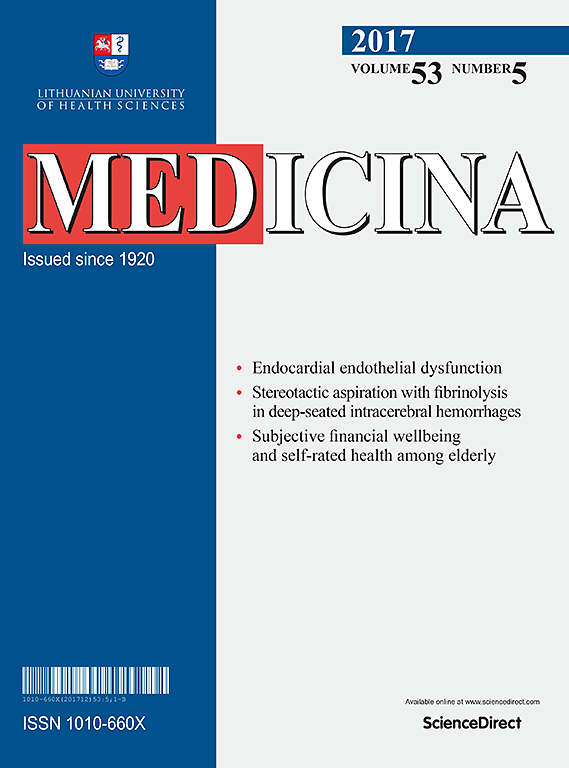
Effects of Caffeinated and Decaffeinated Coffee Consumption on Metabolic Syndrome Parameters: A Systematic Review and Meta-Analysis of Data from Randomised Controlled Trials
2021 Sep 11 Medicina Ramli NNS, Alkhaldy AA, Mhd Jalil AM
Systematic Review Meta-Analysis Metabolic Syndrome CoffeeCoffee extract supplementation significantly improves parameters of metabolic syndrome, with the effects varying according to the types and doses of coffee administered.

Coffee consumption, health benefits and side effects: a narrative review and update for dietitians and nutritionists
2021 Aug 28 Critical Reviews in Food Science and Nutrition Barrea L, Pugliese G, Frias-Toral E, El Ghoch M, Castellucci B, Chapela SP, et al.
Review Article Type 2 Diabetes Obesity Metabolic SyndromeCoffee consumption may contribute to the prevention of several inflammatory diseases and types of cancer, with reduced mortality risk deemed safe up to 400mg of caffeine per day.
Clinical Trials
Clinical trials are research studies that involve people and are conducted to evaluate the safety and efficacy of new treatments or interventions, such as drugs, medical devices, or behavioural therapies.
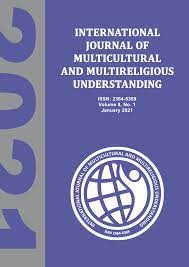
The Effect of Combined Exercise with Coffee Consumption on Fasting Blood Sugar Levels and Abdominal Obesity in Overweight Middle-aged Prediabetic Men
2021 Jul 28 International Journal of Multicultural and Multireligious Understanding Taheri AR, Talebi N
Randomised Controlled Trial Type 2 Diabetes Obesity Prediabetic Blood SugarCombined exercise and coffee consumption significantly reduce fasting blood sugar and abdominal obesity in middle-aged, pre-diabetic men.
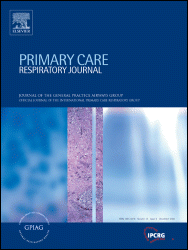
Honey plus coffee versus systemic steroid in the treatment of persistent post-infectious cough: a randomised controlled trial
2013 Aug 21 Primary Care Respiratory Journal Raeessi MA, Aslani J, Raeessi N, Gharaie H, Zarchi AAK, Raeessi F
Randomised Controlled Trial Coffee HoneyHoney plus coffee, presented as a jamlike paste, emerges as a more effective alternative medicine for persistent post-infectious cough (PPC) compared to systemic steroids, demonstrating significant reduction in cough frequency in a randomized controlled trial.
Study Protocols
Published study protocols are detailed plans that outline the objectives, methodology, statistical analyses, and organisation of a research study that have been made publicly available for others to review and use as a reference.
Presentation Slides

Cohort Study
Heavy coffee consumption increases the risk of cardiovascular disease mortality in individuals with severe hypertension, while green tea consumption does not.
Teramoto M, Yamagishi K, Muraki I, Tamakoshi A, Iso H

Review Article
Consumption of tea and coffee may possibly provide anti-inflammatory effects, contributing to reduced cardiovascular risk and mortality.
Surma S, Sahebkar A, Banach M

Cohort Study
Frequent consumption of sugar-sweetened coffee can adversely affect blood sugar control in patients with diabetes mellitus in Korea.
Yoo H, Park K

Review Article
Consuming 2-3 cups of coffee daily can help prevent cardiovascular disease and drinking at least 3 cups of green tea has similar benefits.
Chieng D, Kistler PM

Systematic Review
Higher consumption of coffee and specifically decaffeinated coffee raises the risk of rheumatoid arthritis, while caffeinated coffee, tea and caffeine intake doesn't.
Asoudeh F, Dashti F, Jayedi A, Hemmati A, Fadel A, Mohammadi H

Systematic Review
Coffee extract supplementation significantly improves parameters of metabolic syndrome, with the effects varying according to the types and doses of coffee administered.
Ramli NNS, Alkhaldy AA, Mhd Jalil AM

Review Article
Coffee consumption may contribute to the prevention of several inflammatory diseases and types of cancer, with reduced mortality risk deemed safe up to 400mg of caffeine per day.
Barrea L, Pugliese G, Frias-Toral E, El Ghoch M, Castellucci B, Chapela SP, Carignano MA, Laudisio D, Savastano S, Colao A, Muscogiuri G
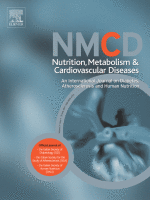
Systematic Review
Drinking coffee may be linked to lower mortality risk in type 2 diabetes patients.
Shahinfar H, Jayedi A, Khan TA, Shab-Bidar S

Randomised Controlled Trial
Combined exercise and coffee consumption significantly reduce fasting blood sugar and abdominal obesity in middle-aged, pre-diabetic men.
Taheri AR, Talebi N
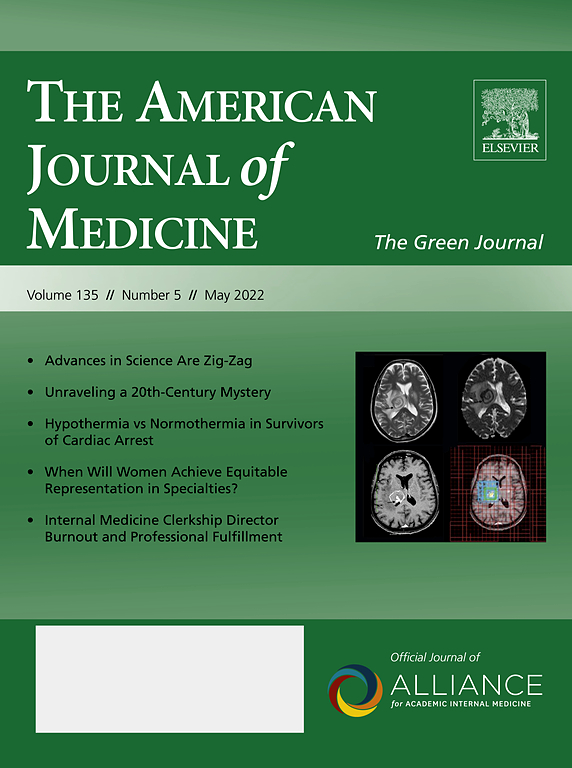
Systematic Review
Coffee consumption, particularly boiled coffee, may increase levels of certain cardiovascular risk markers, but no strong link was found to anti-inflammatory effects.
Daneschvar HL, Smetana GW, Brindamour L, Bain PA, Mukamal KJ

Systematic Review
Consumption of certain foods like rapeseed/canola oil, avocados, and turmeric can lead to moderate to large reductions in LDL cholesterol levels.
Schoeneck M, Iggman D

Cohort Study
Moderate coffee consumption may potentially reduce the risk of low HDL-C and high fasting blood glucose amongst Korean male adults.
Tan LJ, Jeon HJ, Park SH, Kim SA, Lim K, Chung S, Chang PS, Lee J, Kang D, Shin S

Review Article
Green tea, coffee, wine, and curry have beneficial health effects due to the polyphenols they contain, which possess both antioxidant and pro-oxidant properties.
Ohishi T, Fukutomi R, Shoji Y, Goto S, Isemura M
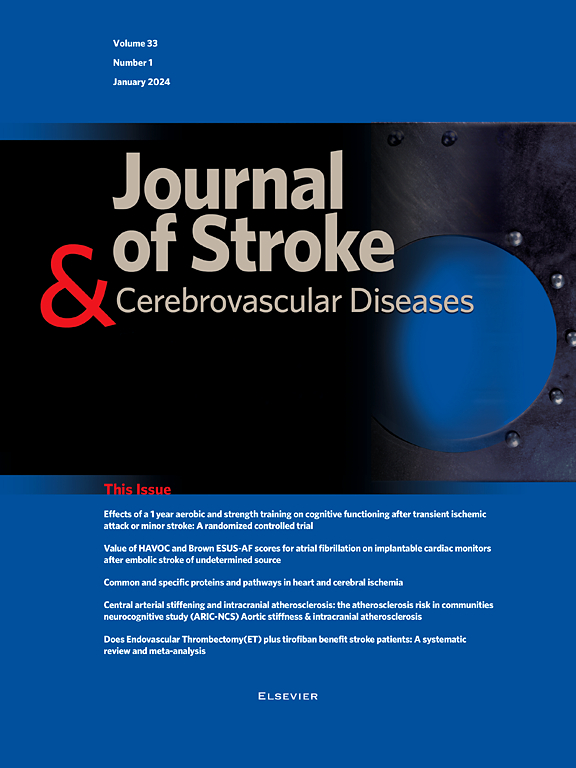
Systematic Review
Higher coffee consumption, specifically 3-4 cups daily, is associated with a 21% lower risk of stroke, with no further reductions with increased intake.
Shao C, Tang H, Wang X, He J
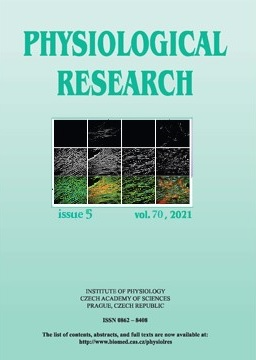
Review Article
Tea and coffee possess health promoting properties and can effectively prevent and treat metabolic disorders, including obesity, through the suppression of fat storage.
Sirotkin AV, Kolesarova A
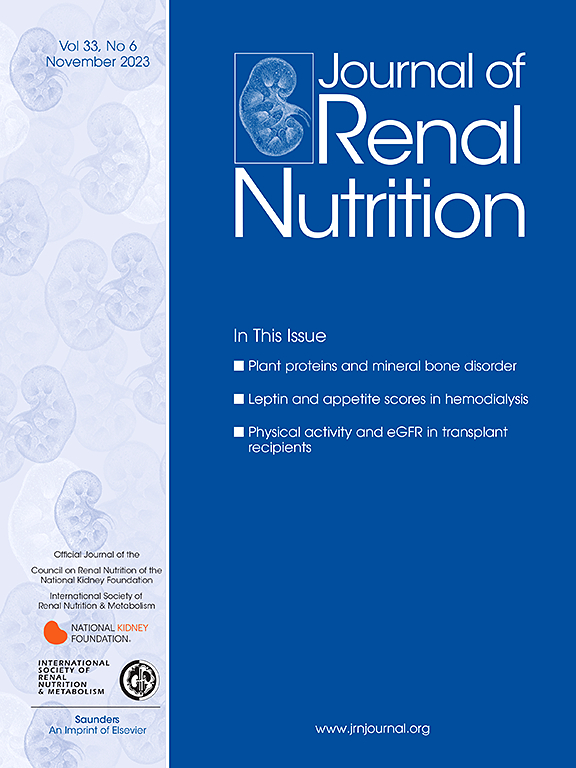
Systematic Review
Consuming coffee is associated with lower risks of developing chronic kidney disease, reaching end-stage kidney disease, and having albuminuria.
Kanbay M, Siriopol D, Copur S, Tapoi L, Benchea L, Kuwabara M, Rossignol P, Ortiz A, Covic A, Afsar B

Review Article
Coffee's bioactive compounds may exhibit various health benefits such as antioxidant and anti-inflammatory properties on the digestive tract and stimulating effects on motor function.
Iriondo-DeHond A, Uranga JA, del Castillo MD, Abalo R
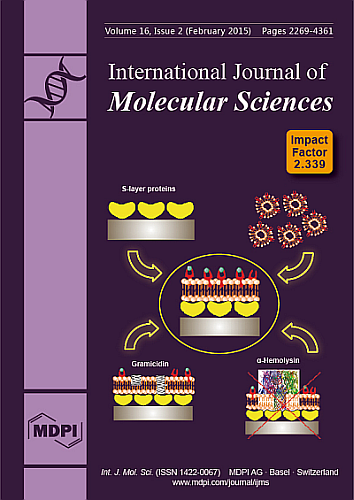
Review Article
Regular coffee consumption, due to its bioactive compounds, may have protective effects against chronic disorders and certain neurodegenerative conditions.
Socała K, Szopa A, Serefko A, Poleszak E, Wlaź P

Review Article
Beverages, through their diverse nutritional contents, have notable effects on rheumatoid arthritis progression by interacting with immune signaling pathways and altering the microbiome.
Dey M, Cutolo M, Nikiphorou E

Experimental Study
The major components of green tea and coffee, EGCG and CGA respectively, may have anti-cancer effects, though these effects seem to vary for different types of cancer.
Hayakawa S, Ohishi T, Miyoshi N, Oishi Y, Nakamura Y, Isemura M
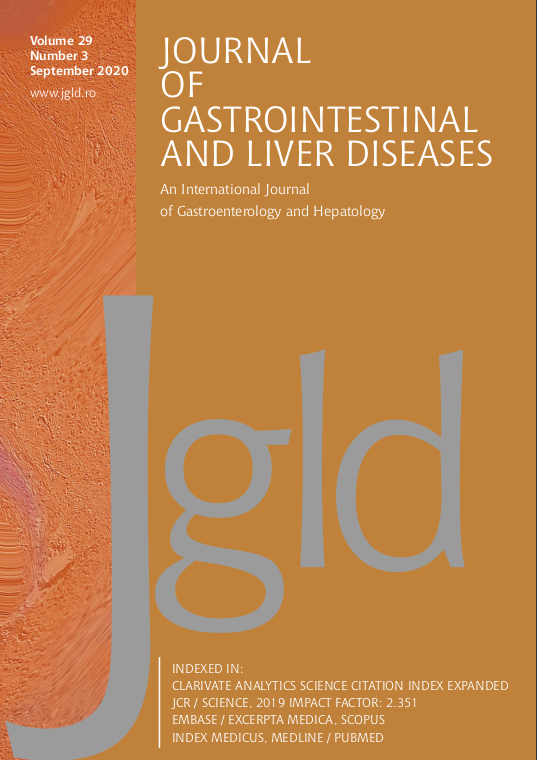
Systematic Review
Higher consumption of coffee correlates with a significant decrease in the risk of liver cancer or hepatocellular carcinoma.
Bhurwal A, Ratta P, Yoshitake S, Pioppo L, Reja D, Dellatore P, Rustgi V
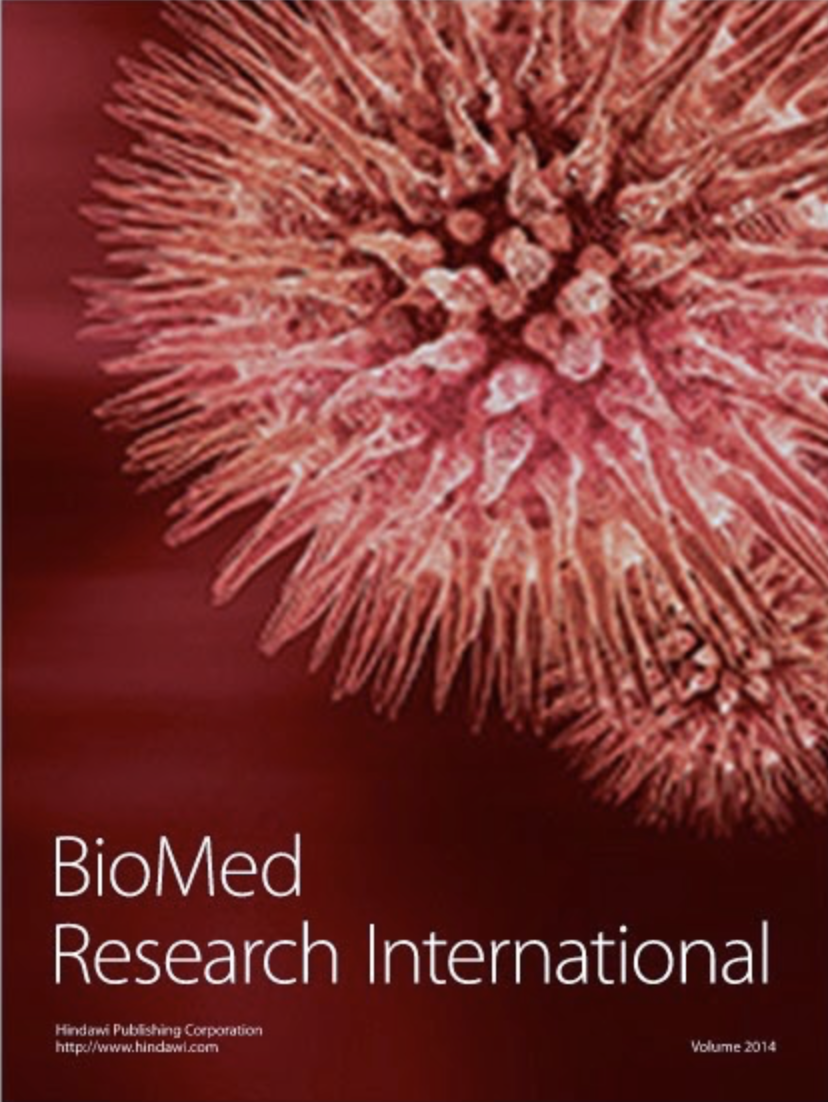
Review Article
Coffee consumption can significantly alter the absorption, distribution, metabolism, and excretion of many drugs, leading to varied therapeutic responses.
Belayneh A, Molla F

Theoretical Article
Coffee, like many fruits and vegetables, activates a cellular response that boosts antioxidants and repair enzymes, which contributes to a lower risk of several diseases.
Kolb H, Kempf K, Martin S
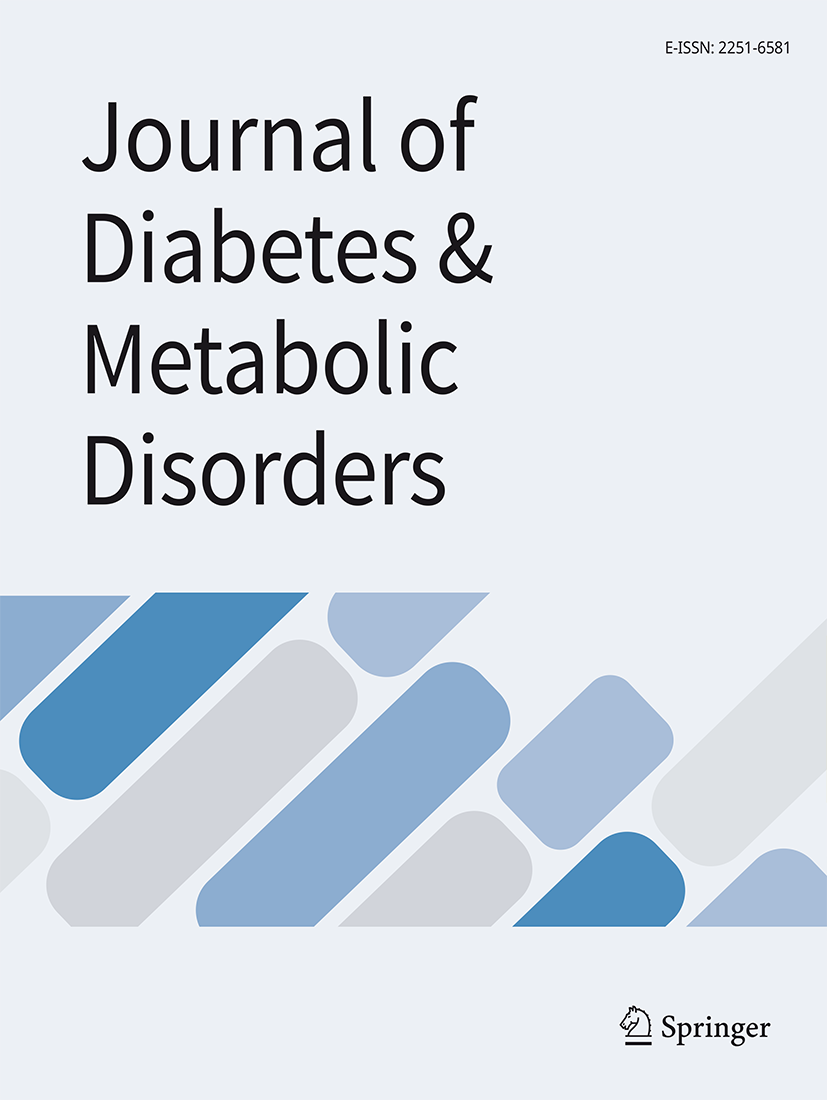
Systematic Review
Green coffee supplementation significantly decreases fasting blood sugar, insulin, and triglycerides while boosting high-density lipoprotein levels.
Morvaridi M, Rayyani E, Jaafari M, Khiabani A, Rahimlou M

Daily consumption of coffee and green tea is linked with decreased body mass index, body fat percentage, and cardiovascular risks in middle-aged Japanese women.
Yonekura Y, Terauchi M, Hirose A, Odai T, Kato K, Miyasaka N

Systematic Review
Coffee intake may have a variable effect on inflammation markers, with different responses noted between men and women and across various geographical regions.
Moua ED, Hu C, Day N, Hord NG, Takata Y

Meta-Analysis
Coffee consumption shows a strong association with decreased risk of liver and endometrial cancer.
Zhao LG, Li ZY, Feng GS, Ji XW, Tan YT, Li HL, Gunter MJ, Xiang YB
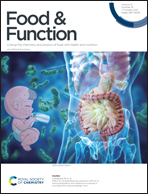
Review Article
Coffee and decaffeinated coffee appear to provide long-term protection against developing type 2 diabetes, potentially due to the influence of chlorogenic acids.
Williamson G
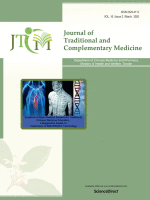
Systematic Review
Coffee consumption, in the long term, improves glucose metabolism but may cause unfavourable acute effects.
Reis CEG, Dórea JG, da Costa THM

Systematic Review
Coffee consumption shows a protective effect against colorectal and colon cancers, particularly among US subjects and European men.
Sartini M, Bragazzi N, Spagnolo A, Schinca E, Ottria G, Dupont C, Cristina M
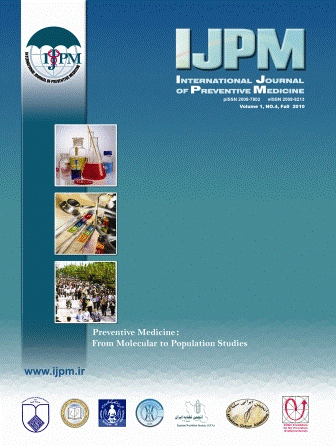
Systematic Review
Decaffeinated coffee enriched with chlorogenic acid does not significantly affect blood glucose levels in healthy humans, even though it does impact animals.
Faraji H

Experimental Study
Coffee consumption, particularly caffeinated coffee, predominantly exhibits anti-inflammatory effects, contrasting with caffeine's complex impact on inflammation.
Paiva CLRS, Beserra BTS, Reis CEG, Dorea JG, Da Costa THM, Amato AA

Review Article
Coffee consumption, up to three cups a day, can reduce the risk of Type-2 diabetes and metabolic syndrome in adults.
Baspinar B, Eskici G, Ozcelik AO

Randomised Controlled Trial
Honey plus coffee, presented as a jamlike paste, emerges as a more effective alternative medicine for persistent post-infectious cough (PPC) compared to systemic steroids, demonstrating significant reduction in cough frequency in a randomized controlled trial.
Raeessi MA, Aslani J, Raeessi N, Gharaie H, Zarchi AAK, Raeessi F
Executive Summary
Write an executive summary in the form of a blog article on the topic of "Research into Chinese medicine treatment for Coffee" summarising the research below and using language that can be easily understood by patients and avoiding medical jargon using a professional and caring tone of voice.
Write an executive summary in the form of a blog article on the topic of "Researched Chinese medicine treatments for Coffee" summarising the research below in an objective and easy to understand way, and using language that can be easily understood by patients. Group the article into Chinese medicine treatments first, followed by nutrition and other treatments. Avoid using medical jargon and use a professional and caring tone of voice.
Write me a concise but easy to understand executive summary on the topic of "Chinese medicine treatments for Coffee" based on the following research that I will give you. Your summary should be 2 paragraphs long in Australian English spelling and include references to the studies.
A Cohort Study published in 2023 in the journal Journal of the American Heart Association found that Heavy coffee consumption increases the risk of cardiovascular disease mortality in individuals with severe hypertension, while green tea consumption does not. With the use of the Japan Collaborative Cohort Study, researchers assessed 18,609 participants, both male and female, aged between 40 to 79 years. These participants had varying blood pressure levels, categorized into optimal and normal BP, high-normal BP, and two stages of hypertension. They completed a questionnaire about their lifestyle, diet, and medical history, and underwent health examinations, which were followed up until 2009. The association of coffee and green tea consumption on cardiovascular disease mortality was then calculated using a Cox proportional hazard model. It was found over an 18.9 year follow-up period that heavy coffee consumption was linked to increased risk of cardiovascular disease mortality among those suffering from the second to third grade of hypertension. In stark contrast, people with optimal and normal, high-normal blood pressure and first grade hypertension did not show such associations between coffee consumption and cardiovascular disease mortality. Interestingly, the risk of cardiovascular disease mortality was not found to be increased across any blood pressure categories in relation to green tea consumption.
A Review Article published in 2023 in the journal Pharmacological Research found that Consumption of tea and coffee may possibly provide anti-inflammatory effects, contributing to reduced cardiovascular risk and mortality. The methodology of this narrative review examined the potential anti-inflammatory properties of consuming tea and coffee as a factor in reducing the risk of cardiovascular disease. This was done by analyzing a plethora of studies and meta-analyses that explored the impact of diet on inflammation, with a keen focus on the consumption of these beverages. The studies looked at a variety of risk factors for atherosclerotic cardiovascular disease, including inflammation biomarkers such as C-reactive protein, along with the impact of modern lipid-lowering treatments. In discussing the results, it was noticed that inconsistent findings were produced from the analysed studies which made a conclusive determination challenging. However, a trend was observed where drinking tea and coffee seemed to raise adiponectin levels, reduce reactive oxygen species and lower low-density lipoprotein cholesterol levels. Despite these potential anti-inflammatory properties of tea and coffee being somewhat uncertain due to various confounding factors, their consumption is still recommended as part of a healthy diet.
A Cohort Study published in 2022 in the journal Metabolites found that Frequent consumption of sugar-sweetened coffee can adversely affect blood sugar control in patients with diabetes mellitus in Korea. This study focused on adult coffee consumption patterns in Korea using data collected from the Korea National Health and Nutrition Examination Survey between 2008 to 2020. The consuming habits of 5671 diabetic patients were analyzed considering how often they consumed a mixture of coffee with sugar and creamer, referred commonly as 3-in-1 coffee. The methods used involved assessing these patterns through a 24-hour recall. Blood sugar control was evaluated using fasting blood glucose levels and hemoglobin A1c levels, in line with the targets set by the Korean Diabetes Association. The results revealed that nearly half of the diabetic patients in this study consumed sugar-sweetened coffee. These patients demonstrated significantly higher fasting blood glucose and hemoglobin A1c levels compared to those who did not partake in such consumption. The findings also indicated an increased likelihood of patients failing to achieve their blood sugar control targets, corresponding to the frequency of their consumption of sugar-sweetened coffee.
A Review Article published in 2022 in the journal Trends in Cardiovascular Medicine found that Consuming 2-3 cups of coffee daily can help prevent cardiovascular disease and drinking at least 3 cups of green tea has similar benefits. In this review, researchers examined the effects of habitual coffee and tea consumption on cardiovascular disease (CVD) prevention. Specifically, they studied the association between 2-3 cups of coffee or tea consumed daily and their beneficial effects on metabolic syndrome, including hypertension and diabetes mellitus, focusing on how these popularly consumed beverages might affect lipid levels. The analysis of findings drew a correlation between moderate coffee intake and a reduced risk of several cardiovascular conditions, such as coronary heart disease, heart failure, arrhythmia, stroke, and CVD, in addition to lowering mortality from all causes. It was also noted that the benefits extended to higher tea consumption as well, particularly in the case of green tea, where it led to improved survival rates in population-based studies.
A Systematic Review published in 2022 in the journal Frontiers in Nutrition found that Higher consumption of coffee and specifically decaffeinated coffee raises the risk of rheumatoid arthritis, while caffeinated coffee, tea and caffeine intake doesn't. In the methodology, a dose-response meta-analysis of prospective cohort studies was carried out to evaluate the association between dietary caffeine, and different types of coffee and tea consumption with rheumatoid arthritis (RA). Relevant research papers were identified through a database search in PubMed/Medline, Scopus and EMBASE until July 2021. The studies considered different types of coffee, caffeinated or decaffeinated, tea or caffeine exposure with RA as the main or one of the outcomes. Out of 742 publications, five studies were selected for inclusion in the meta-analysis. Pooled relative risks were calculated through a fixed-effects model. Both linear and non-linear dose-response analyses were conducted to inspect dose-response relations. The analysis of results revealed a significant association between the consumption of coffee, especially decaffeinated coffee and increased risk of RA, when comparing between extreme categories of consumption. For each additional cup of coffee consumed daily, there was a notable increase in the risk of RA. However, this study found no significant link between the intake of caffeinated coffee, tea or caffeine intake and the risk of RA.
A Systematic Review published in 2021 in the journal Medicina found that Coffee extract supplementation significantly improves parameters of metabolic syndrome, with the effects varying according to the types and doses of coffee administered. In this systematic review and meta-analysis, the researchers sourced relevant articles from PubMed and Scopus published between 2015 and 2020. The investigation focused on randomised controlled trials that studied the impact of coffee consumption on factors like body measurements, blood sugar indices, lipid profiles, and blood pressure. Effects of green coffee extract (GCE) supplementation and decaffeinated coffee were analysed in the study. Following a meticulous extraction and analysis of data from the relevant studies, the researchers found significant improvements in parameters of metabolic syndrome upon supplementation with GCE and decaffeinated coffee. The GCE supplementation, ranging from 180 to 376 mg, was found to reduce waist circumference, triglyceride levels, systolic and diastolic blood pressure while increasing high-density lipoprotein-cholesterol levels. The intake of decaffeinated coffee reduced fasting blood glucose levels. The analysis revealed improvements in metabolic syndrome outcomes for participants consuming GCE and liquid decaffeinated coffee.
A Review Article published in 2021 in the journal Critical Reviews in Food Science and Nutrition found that Coffee consumption may contribute to the prevention of several inflammatory diseases and types of cancer, with reduced mortality risk deemed safe up to 400mg of caffeine per day. The methodology used in this scholarly review was based on an extensive literature review using the PubMed/Medline database. As the primary research tool, this database facilitated the authors' collation and analysis of relevant studies concerning the impact of coffee consumption on health outcomes. The focus was to determine both the positive and negative aspects of coffee consumption, with an additional aim of providing dosage recommendations. The data collated from these studies was then summarised and analysed through a narrative approach, making the findings more digestible and interpretable. The findings suggested that coffee consumption may play a significant role in preventing inflammatory and oxidative stress-related diseases such as obesity, metabolic syndrome and type 2 diabetes. In addition, findings indicated that coffee consumption also seemed to have an association with a lower incidence of several types of cancer and a reduction in the risk of all-cause mortality. However, notable is the need for a time gap between coffee consumption and the intake of some drugs to avoid potential interactions. It was also concluded that the consumption of up to 400mg/day of caffeine was generally found to be safe for the average person.
A Systematic Review published in 2021 in the journal Nutrition, Metabolism and Cardiovascular Diseases found that Drinking coffee may be linked to lower mortality risk in type 2 diabetes patients. In this study, the researchers conducted an exhaustive literature search through PubMed, Scopus, and Web of Sciences up to November 2020. They were looking for prospective cohort studies that evaluated the link between coffee consumption and the risk of cardiovascular disease and mortality in patients with type 2 diabetes. Two reviewers took on the work of extracting relevant data and assessing the certainty of evidence using the GRADE approach. A random-effects model was deployed to estimate hazard ratios. Dose-response connections were modeled using a one-stage mixed-effects meta-analysis. The researchers included ten prospective cohort studies that totalled 82,270 cases. The results showed an interesting trend: compared to those who did not consume coffee, the hazard ratios were consistently lower for mortality outcomes and cardiovascular disease, especially where the consumption rate was four cups per day. Importantly, no such association was found for either cancer mortality or stroke. The evidence suggested a potential inverse monotonic association between coffee drinking and mortality across all causes and cardiovascular disease, alongside a linear association for coronary heart disease and total cardiovascular events. The degree of certainty in these results was moderate for all-cause mortality, but was low or very low for all other reported outcomes.
A Randomised Controlled Trial published in 2021 in the journal International Journal of Multicultural and Multireligious Understanding found that Combined exercise and coffee consumption significantly reduce fasting blood sugar and abdominal obesity in middle-aged, pre-diabetic men. In the study, 44 overweight, middle-aged pre-diabetic men were purposefully selected and divided into four groups: The Exercise Combination group, the Coffee Consumption group, the Combined Exercise + Coffee Consumption group, and the Control group. Prior to and following the experiment, measurements such as weight, body mass index, and percentage of fasting fat were recorded. The exercise groups were subjected to a training protocol for 8 weeks, which involved three, 90 minute sessions every week. Concurrently, the Coffee and the Exercise + Coffee group consumed 10 grams of coffee every alternate day. The data were processed using a covariance test. The results clearly indicated a substantial decrease in the body mass index, fat percentage, and serum concentration of fasting blood glucose in the exercise groups in comparison to the Control group. The study demonstrated that, for pre-diabetic men, a combination of exercise with coffee may effectively manage fasting blood sugar and abdominal obesity.
A Systematic Review published in 2021 in the journal The American Journal of Medicine found that Coffee consumption, particularly boiled coffee, may increase levels of certain cardiovascular risk markers, but no strong link was found to anti-inflammatory effects. Methodically considering pre-selected databases such as PubMed, Embase, CINAHL and more, this study rigorously searched for randomized controlled trials to analyse the impacts of coffee consumption on inflammatory indicators of cardiovascular risk. Duplicate data and trials that did not meet the study's criteria were removed. The remaining 17 studies that passed scrutiny were included in the analysis, looking particularly at effects of coffee on cholesterol levels, apolipoprotein B levels and interleukin 6 levels. This comprehensive review resulted in interesting findings. Boiled coffee emerged as a potential culprit for increased levels of total and low-density lipoprotein cholesterol along with apolipoprotein B. Filtered coffee, on the other hand, did not show similar trends. In one trial, caffeinated coffee showed a noteworthy increase in blood interleukin 6 levels compared to participants who did not consume coffee. However, no robust anti-inflammatory effects connected to coffee consumption could be confidently ascertained to be a significant factor in reducing mortality rates related to cardiovascular disease.
A Systematic Review published in 2021 in the journal Nutrition, Metabolism and Cardiovascular Diseases found that Consumption of certain foods like rapeseed/canola oil, avocados, and turmeric can lead to moderate to large reductions in LDL cholesterol levels. The research was carried out by conducting a systematic evaluation of existing guidelines, systematic reviews, and Randomised Control Trials (RCTs); we have only referred to the latter for studies on coffee intake. This was done on databases such as PubMed, Cochrane Database of Systematic Reviews, and Cochrane Central Register of Controlled Trials, alongside a search on the Trip database for guidelines. The time frame for the study was from its inception up until June 2019 and October 2019 respectively. Studies were included if they were at least 13 days in duration and were in English. Using the Grading of Recommendations Assessment, Development, and Evaluation (GRADE) method, 37 guidelines, 108 systematic reviews, and 20 RCTs were evaluated to analyze the strength of evidence in the context of food impacts on LDL cholesterol levels. The results of the research reveal that foods high in unsaturated and low in saturated and trans fatty acids such as rapeseed or canola oil, those with added plant sterols/stanols, and those high in soluble fibre like oats, barley and psyllium cause moderate reductions in LDL cholesterol. A moderate to a large increase was observed with unfiltered coffee though. Soy protein, tomatoes, flaxseeds, and almonds cause small reductions. Meanwhile, foods like avocados and turmeric cause moderate to large reductions with a moderate level of evidence supporting this observation. Other foods like pulses, hazelnuts, walnuts, high-fiber/wholegrain foods, green tea result in small to moderate reductions, and sugar causes a small increase. Several foods identified were either neutral or had low or very low evidence regarding their effects on LDL cholesterol levels.
A Cohort Study published in 2021 in the journal Nutrients found that Moderate coffee consumption may potentially reduce the risk of low HDL-C and high fasting blood glucose amongst Korean male adults. The study was designed to evaluate the link between coffee intake and the onset of metabolic syndrome, utilizing participant data sourced from the Health Examinees study. Metabolic Syndrome was identified based on the criteria set by the Adult Treatment Panel III of the National Cholesterol Education Program. The researchers deployed a multivariate Cox proportional hazards regression model to examine the relationship between different levels of coffee consumption and the incidence of metabolic syndrome. In the analysis of the results, moderate coffee consumption, approximately 1-3 cups per day, in male participants was found to have an inverse correlation with low high-density lipoprotein cholesterol (HDL-C) and high fasting blood glucose. More so, this inverse correlation was further observed with the consumption of 3-in-1 coffee, which includes sugar and creamer. This suggests that male habitual coffee drinkers may be less likely to experience low HDL-C and high fasting blood glucose, key markers of metabolic syndrome.
A Review Article published in 2021 in the journal Molecules found that Green tea, coffee, wine, and curry have beneficial health effects due to the polyphenols they contain, which possess both antioxidant and pro-oxidant properties. The research leverages epidemiological studies, clinical trials, cell-based studies and animal tests to examine the effects of green tea, coffee, wine, and curry -- and their key polyphenols -- on human health. The polyphenols investigated include epigallocatechin gallate in green tea, chlorogenic acid in coffee, resveratrol in wine, and curcumin in curry. The study concentrates on the workings of these polyphenols, primarily focusing on reactive oxygen species (ROS), and how they perform both anti- and pro-oxidant functions, fundamentally influencing different enzymes and factors with health contributions. In the discussion of the results, it is mentioned that the anti-oxidative actions of these polyphenols assist in the scavenging of ROS and the downregulation of the nuclear factor-κB, yielding beneficial anti-inflammatory effects. Conversely, their pro-oxidant actions appear to elevate ROS production, encouraging the activation of 5'-AMP-activated protein kinase that regulates different enzymes and factors for health improvement. However, the exact mechanism of how these polyphenols exhibit either pro- or anti-oxidant effects remains unclear. Also, the research underscores that while many studies note their health benefits, some others show no positive effects on health conditions such as obesity, suggesting that outcomes could be influenced by various study factors.
A Systematic Review published in 2021 in the journal Journal of Stroke and Cerebrovascular Diseases found that Higher coffee consumption, specifically 3-4 cups daily, is associated with a 21% lower risk of stroke, with no further reductions with increased intake. The research utilized a systematic review and meta-analysis approach to investigate the link between coffee consumption and stroke risk. Random-effects models were employed to compile relative risk estimates. The assessment was structured to compare the highest and lowest categories of coffee consumption and utilized a one-stage robust error meta-regression model for stroke risk assessment. The study incorporated 21 separate studies which in total included over 2.4 million participants. The findings suggest a significant inverse connection between coffee consumption and the risk of stroke. According to the pooled relative risk analysis, the highest versus the lowest categories of coffee consumption showed a decrease in stroke risk. There seems to be a nonlinear (U-shaped) relationship between stroke risk and coffee consumption, with the lowest risk (21% lower) associated with consuming 3-4 cups of coffee per day. Sensitivity analysis suggested the influence of each individual data set on the overall result wasn't significant, and while some evidence of publication bias was witnessed, additional analysis established that potential bias didn't impact the findings noticeably.
A Review Article published in 2021 in the journal Physiological Research found that Tea and coffee possess health promoting properties and can effectively prevent and treat metabolic disorders, including obesity, through the suppression of fat storage. The paper provides a detailed review of the origin, chemical composition and properties of tea and coffee, including the health benefits associated with them. It specifically focuses on their impacts on fat storage and the potential physiological mechanisms behind their effects. The potential health effects of these plants are attributed, in part, to the presence of caffeine. Additional physiological and medicinal benefits could be linked to other molecules such as theaflavins, catechins, their metabolites and polyphenols found in tea and polyphenol chlorogenic acid in coffee. In the discussion, the paper points out that both tea and coffee can be instrumental in preventing and treating a host of metabolic disorders including metabolic syndrome, cardiovascular diseases, type 2 diabetes and obesity. The mechanism these plants employ to bring about these health benefits is through the reduction of fat storage by suppressing adipocyte functions and supporting gut microbiota. Moreover, tea also exhibits an ability to prevent obesity by reducing appetite, food consumption and food absorption in the gastrointestinal system, as well as modifying the fat metabolism.
A Systematic Review published in 2021 in the journal Journal of Renal Nutrition found that Consuming coffee is associated with lower risks of developing chronic kidney disease, reaching end-stage kidney disease, and having albuminuria. In this systematic review and meta-analysis, researchers conducted a comprehensive literature search through various databases, including PubMed/Medline, Web of Science, Embase by Elsevier, and the Cochrane Central Register of Controlled Trials by Wiley from 1960 until February 2020. Outcomes related to chronic kidney disease incidence, its progression, and mortality associated with this disease were evaluated and correlated with coffee consumption and the amount consumed. Quality assessment of the included studies was done using the Newcastle-Ottawa scale. The analysis incorporated 12 studies, with a mix of prospective and cross-sectional studies, and a total of 505,841 subjects. Seven of these studies focused on the relationship between coffee consumption and the onset of chronic kidney disease. The finding was that consuming coffee was significantly correlated with a decrease in the risk for this disease, especially for individuals who took more than 2 cups of coffee per day. Furthermore, there was also a noteworthy lower risk of reaching end-stage kidney disease for coffee drinkers, as well as a decrease in the risk of albuminuria (a kidney disease marker). Finally, the risk of death related to chronic kidney disease was discovered to be lower in coffee consumers.
A Review Article published in 2020 in the journal Nutrients found that Coffee's bioactive compounds may exhibit various health benefits such as antioxidant and anti-inflammatory properties on the digestive tract and stimulating effects on motor function. The methodology involved a narrative review of the impact of coffee; its by-products; and its bioactive components on the gastrointestinal system and the brain-gut axis. The gastrointestinal mucosa's reactions, mainly involving permeability, secretion, and proliferation, the neural and non-neural elements of the gut wall contributing to its motor function, and the brain-gut connection were all elements of critique and consideration. The results from the in vitro, in vivo, and epidemiological studies demonstrated that coffee induces various effects on the digestive system. For instance, it might act as an antioxidant, have anti-inflammatory effects, and act against cell overgrowth in the mucosa. In addition, coffee seems to promote motor functions in the gastrointestinal tract's external muscle layers. Nonetheless, despite these affirmed possible effects, much about coffee's accurate and detailed influence remains largely unexplored.
A Review Article published in 2020 in the journal International Journal of Molecular Sciences found that Regular coffee consumption, due to its bioactive compounds, may have protective effects against chronic disorders and certain neurodegenerative conditions. The paper evaluates the neuroprotective potential of the main bioactive elements in coffee: caffeine, chlorogenic acid, caffeic acid, trigonelline, kahweol, and cafestol. The analysis is focused on the coffee beverage as a complex mixture of these bioactive compounds. The comprehensive study includes in vitro and in vivo preclinical tests to determine the specific health benefits each of these compounds can offer. The results indicate that regular coffee intake may have defensive effects against a variety of enduring disorders; including cardiovascular disease, type 2 diabetes, obesity, and some forms of cancer. Additionally, an interesting correlation is found between coffee consumption and a lower risk of developing certain neurodegenerative conditions such as Alzheimer's disease, Parkinson's disease, and dementia. The study also highlights that regular coffee intake could possibly lower the risk of stroke. However, the study mentions that the mechanisms enabling these effects are yet to be fully understood.
A Review Article published in 2020 in the journal Nutrients found that Beverages, through their diverse nutritional contents, have notable effects on rheumatoid arthritis progression by interacting with immune signaling pathways and altering the microbiome. The researchers reviewed existing literature to assess the role of various beverages in the context of rheumatoid arthritis. The primary focus of their study was understanding how the molecular contents of beverages such as coffee, tea, and wine, are contributing to the development and progression of the disease by interfering with immune signaling pathways. Moreover, they examined how these beverages affect the microbiome, leading to downstream effects on inflammatory pathways. The outcomes of the analysis indicate that beverages indeed play a pivotal role in the autoimmunity of rheumatoid arthritis. They found evidence that certain components present in beverages could either benefit the disease progression or negatively contribute to it. The researchers also discovered that considering beverages in the wider context of dietary patterns can help to better understand their role in disease management.
A Experimental Study published in 2020 in the journal Molecules found that The major components of green tea and coffee, EGCG and CGA respectively, may have anti-cancer effects, though these effects seem to vary for different types of cancer. Studies were conducted across cell-based and animal trials to explore the health benefits, particularly in anticancer effects, of epigallocatechin gallate (known as EGCG) and chlorogenic acid (CGA), the predominant elements in green tea and coffee, respectively. It was observed that the results were inconsistent due to possible confounding factors. A conceivable mechanism suggested, a part of those shared between EGCG and CGA, was related to the alterations in reactive oxygen species. However, the variance in the anti-cancer effects may be attributed to the different target molecules of EGCG and CGA, signifying the site-specific differences of anti-cancer effects observed in human studies.
A Systematic Review published in 2020 in the journal Journal of Gastrointestinal and Liver Diseases found that Higher consumption of coffee correlates with a significant decrease in the risk of liver cancer or hepatocellular carcinoma. In the methodology, a systematic review and meta-analysis was performed on original articles, published in English from 1996 to June 2019, that linked coffee consumption with liver cancer or hepatocellular carcinoma. Numerous databases, including PubMed/MEDLINE/EMBASE/Ovid/Google Scholar, were searched for relevant case-control, cohort or prospective studies. The Relative Risk (RR) for these conditions was calculated for coffee drinking, further stratified by the increments of one cup of coffee per day. The final analysis involved 20 studies, analysed using random effects models, with heterogeneity between studies calculated by Cochrane Q and the I2 statistics. The results indicated that the overall Relative Risk (RR) displayed significant heterogeneity among the studies. A subgroup analysis was performed to evaluate the impact of additional coffee intake, and it was discerned that higher coffee consumption was associated with a substantial drop in the risk of developing hepatocellular carcinoma(HCC) or liver cancer. Additionally, there was no indication of significant publication bias observed in the funnel plot.
A Review Article published in 2020 in the journal BioMed Research International found that Coffee consumption can significantly alter the absorption, distribution, metabolism, and excretion of many drugs, leading to varied therapeutic responses. The methodology involved a comprehensive review of research findings, clinical case reports, and expert panels from various reputable sources. These sources ranged from dedicated scientific databases such as Scopus, PubMed, Hindawi, OVID, Embase, and the Cochrane Library, to the broader database of Google Scholar, and the research-intensive Web of Science. In terms of results, it was found that the simultaneous consumption of coffee significantly impacts the pharmacokinetics of many drugs. This can result in a heightened therapeutic response, a failure of the therapeutic response, or even toxic reactions. As a result, it's suggested that the concurrent consumption of coffee and medications that interact significantly with coffee should be avoided. It's advised that there should be an appropriate time gap between drug intake and coffee based upon the specific properties of the drug. Both pharmacists and clinicians should be aware of these potential risks of drug-coffee interaction.
A Theoretical Article published in 2020 in the journal Nutrients found that Coffee, like many fruits and vegetables, activates a cellular response that boosts antioxidants and repair enzymes, which contributes to a lower risk of several diseases. The research paper proposes a new perspective on the health benefits of habitual coffee consumption. Instead of focusing on individual elements in coffee, the study compares coffee as a whole, acting as a plant food, with the advantageous properties of many vegetables and fruits. By linking coffee, vegetables and fruits, researchers identified a common mechanism that promotes health - the activation of an adaptive cellular response which leads to an upsurge of proteins involved in cell protection such as antioxidant, detoxifying and repair enzymes. It was also noted that this response hinges on the activation of the Nuclear factor erythroid 2-related factor-2 (Nrf2) system by phenolic phytochemicals, leading to the expression of cell defense genes. The discussion of the paper's results reveals that coffee plays a significant role in health promotion, the main reason being that it is the primary dietary source of phenolic acids and polyphenols in the developed world. Additionally, a supportive function might be associated with the modulation of the gut microbiota by non-digested prebiotic constituents of coffee. Conclusively, the paper suggests that coffee uses similar health promotion pathways as other vegetables and fruits, and that coffee beans could be seen as healthy vegetable food and a leading supplier of dietary phenolic phytochemicals.
A Systematic Review published in 2020 in the journal Journal of Diabetes & Metabolic Disorders found that Green coffee supplementation significantly decreases fasting blood sugar, insulin, and triglycerides while boosting high-density lipoprotein levels. In methodology, a comprehensive literature review was carried out across PubMed, Embase, Scopus, and the Web of Science databases until October 2019. The objective was to scrutinize all randomized controlled trials of the impact of green coffee supplementation on various cardio metabolic risk factors in adults. These risk factors included fasting blood sugar, insulin, triglycerides, high and low-density lipoproteins and C-reactive protein. Data was then extracted from the relevant studies for analysis. From the selected 27 studies for final analysis, the pooled results depicted that green coffee supplementation had a significant effect in reducing fasting blood sugar, insulin, and triglyceride levels. In addition, it was found to increase the levels of high-density lipoprotein. Conversely, it was determined that the supplementation did not lead to any notable changes in the Homeostatic Model Assessment for Insulin Resistance, low-density lipoprotein and C-reactive protein levels.
A published in 2020 in the journal Nutrients found that Daily consumption of coffee and green tea is linked with decreased body mass index, body fat percentage, and cardiovascular risks in middle-aged Japanese women. This cross-sectional study was conducted with 232 Japanese women aged 40-65 years who visited the menopause clinic of Tokyo Medical and Dental University Hospital from November 2007 to August 2017. The women's body composition and cardiovascular parameters were assessed using a body composition analyzer and vascular screening system. Furthermore, their coffee and green tea consumption frequency was gauged using a brief-type self-administered diet history questionnaire. The researchers then explored the associations between these variables using multivariate logistic regression. In terms of results, the study found a negative association between daily coffee consumption and both high body mass index and body fat percentage. Similarly, daily green tea consumption was inversely related to high body fat percentage. The combined daily consumption of coffee and green tea also showed inverse relationships with both body mass index and body fat percentage. Moreover, in pre- and perimenopausal women, daily consumption of both beverages was found to be negatively associated with cardio-ankle vascular index, a measure of cardiovascular risk.
A Systematic Review published in 2020 in the journal Nutrients found that Coffee intake may have a variable effect on inflammation markers, with different responses noted between men and women and across various geographical regions. The researchers carried out a systematic review and dose-response meta-analysis on the relationship between coffee intake and C-reactive protein (CRP) levels, an inflammation biomarker. They studied eleven previous studies involving a total of 61,047 participants from three different continents. These studies were chosen using the PubMed database. The selected studies had different findings: some showed a negative relationship between coffee and CRP levels, others showed a positive relationship while some showed no significant associations. The researchers analyzed the data from these studies using mixed-effects meta-regression models, with the volume of coffee consumed as the metric. Regarding the discussion of results, there revealed to be considerable variation between the individual studies included in the meta-analysis. In three of the largest studies, it was found that the relationship between coffee consumption and CRP levels appeared to be different depending on the gender of the participant and their location. Women from Europe and the United States, as well as Japanese men, showed a decrease in CRP levels with increased coffee consumption. However, European men showed an increased inflammation marker. When all studies were considered together, no significant relationship between coffee consumption and CRP levels was found among all participants or when the data was stratified by gender or geographical location, showing the contradictory nature of the results noted in individual studies.
A Meta-Analysis published in 2020 in the journal BMC Cancer found that Coffee consumption shows a strong association with decreased risk of liver and endometrial cancer. The randomized umbrella review included a total of 28 individual meta-analyses and 36 summary associations for 26 different types of cancer. In order to collect this data, a variety of databases like PubMed, Embase, Web of Science and the Cochrane database were searched to find systematic reviews and meta-analyses of relationships between coffee consumption and cancer incidence. The summary effect size was estimated for each association using both the fixed and random effects model. A detailed evaluation of heterogeneity, small-study effects, and excess significance bias was also carried out. The results showed 17 out of 28 meta-analyses to be significant. For the highest versus the lowest categories, 4 out of 26 associations showed a more stringent value. There were notable dose-response associations for five types of cancer. Majority of the studies (69%) displayed low heterogeneity. There was evidence of excessive significance bias and publication bias in three and six associations respectively. Data exhibited that coffee intake was inversely proportional to the risk of contracting liver and endometrial cancer. All this remained constant even when the analysis was restricted only to the meta-analysis of cohort studies.
A Review Article published in 2020 in the journal Food & Function found that Coffee and decaffeinated coffee appear to provide long-term protection against developing type 2 diabetes, potentially due to the influence of chlorogenic acids. This research observes a considerable protective effect of coffee and decaffeinated coffee over the long term against the onset of type 2 diabetes, discovered through epidemiological studies. A complex mechanism associated with chlorogenic acids is proposed, with the theory examining their potential impact on blood sugar levels. Interestingly, the effects of decaffeinated coffee on post-meal blood sugar and insulin, if consumed with carbohydrates, is minimal, although these substances might be impacting incretin hormones. The potential effects of chlorogenic acids are examined from the perspective of not directly affecting carbohydrates digestion, but perhaps influencing glucose absorption and subsequent utilisation. Different factors, such as metabolites derived from endogenous pathways or the influence of the gut microbiota, are considered. The study proposes a need for chronic intervention studies on decaffeinated coffee, in sync with more focused in vitro studies using realistic concentrations of relevant chlorogenic acid metabolites, to further understand this protective property of coffee.
A Systematic Review published in 2019 in the journal Journal of Traditional and Complementary Medicine found that Coffee consumption, in the long term, improves glucose metabolism but may cause unfavourable acute effects. Researchers undertook a systematic review to evaluate the impact of coffee consumption on glucose metabolism. They scanned two electronic databases, PubMed and Web of Science, for relevant studies published till September 2017. After thorough scrutiny, eight clinical trials involving 247 participants were earmarked for analysis. These trials were divided into short-term (1-3 hours) and long-term (2-16 weeks) studies for distinct evaluation. The participants' characteristics, major discoveries, and study quality were all meticulously noted and analysed. The initial short-term studies revealed that consumption of caffeinated coffee might lead to an escalation in the area under the curve for the glucose response, an immediate effect. Conversely, long-term studies suggested that caffeinated coffee might contribute to the enhancement of glycaemic metabolism over time by reducing the glucose curve and bolstering the insulin response. Despite the immediate short-term effects, an overall positive long-term impact on glucose metabolism was reported.
A Systematic Review published in 2019 in the journal Nutrients found that Coffee consumption shows a protective effect against colorectal and colon cancers, particularly among US subjects and European men. A systematic review and meta-analysis of 26 prospective studies was conducted to explore the relationship between coffee consumption and the risk of colorectal cancer. The studies included in the review were appraised for their quality using the Newcastle-Ottawa Quality Assessment Scale for Cohort studies, with only one study deemed to be of low quality. The analysis was stratified by ethnicity to determine if this variable could explain the heterogeneity of the studies. In the discussion of the results, it was found that while coffee consumption didn't show a significant relationship with colorectal cancer overall, when stratified for ethnicity, a protective effect emerged in US subjects. This effect was especially pronounced when looking at colon cancer, with coffee showing a protective effect in men and women combined, and in men alone. When examined by ethnicity, there was a significant protective impact in European men and Asian women. However, there was no significant association found with rectal cancer. Decaffeinated coffee also exhibited a protective effect against colorectal cancer in both men and women combined.
A Systematic Review published in 2018 in the journal International Journal of Preventive Medicine found that Decaffeinated coffee enriched with chlorogenic acid does not significantly affect blood glucose levels in healthy humans, even though it does impact animals. A systematic literature review was carried out using relevant keywords in prominent databases like PubMed, Google Scholar, Web of Knowledge, Science Direct, Medline, Cochrane, and Scopus. From an initial pool of 1593 articles spanning 2003 to 2018, duplicates, irrelevant titles, and abstracts were eliminated, leaving 25 potentially relevant articles. Only randomized clinical trials were considered, further reducing the list to six studies for qualitative analysis. Despite some animal studies suggesting a beneficial impact of chlorogenic acid-enriched decaffeinated coffee on blood glucose levels, the selected human studies did not indicate a significant effect among healthy individuals. While various mechanisms have been proposed to explain the lack of effect, further light was not shed on these mechanisms in this review.
A Experimental Study published in 2017 in the journal Critical Reviews in Food Science and Nutrition found that Coffee consumption, particularly caffeinated coffee, predominantly exhibits anti-inflammatory effects, contrasting with caffeine's complex impact on inflammation. The study analysed 15 clinical trials concerning the impact of coffee, caffeine, or coffee components on inflammatory markers. Of these, eight focused on coffee and seven on caffeine with no regard for publication date. These trials tested, under varying conditions, the effect of coffee or caffeine consumption against placebos, or compared inflammatory marker levels before and after consumption. There was no discrimination of the used coffee's processing method, whether filtered or medium/dark roasted. The study discovered that, out of the seven trials comparing filtered coffee/caffeinated coffee with a placebo, or comparing baseline levels versus post-consumption, adiponectin levels increased in four. On the other hand, caffeine trials showed no change. C-reactive protein (CRP) levels remained unchanged in all five studies that considered the effects of coffee. Interestingly, only one out of three trials showed decreased CPR levels in reaction to caffeine. Additionally, Interleukin (IL)-6 level increased when caffeinated coffee was compared with placebo in one out of four coffee trials and with caffeine in three out of five studies. Finally, caffeine consumption resulted in increased IL-10 levels in two out of three trials.
A Review Article published in 2017 in the journal Food & Function found that Coffee consumption, up to three cups a day, can reduce the risk of Type-2 diabetes and metabolic syndrome in adults. The methodology behind this research review involves an exploration of the relationship between coffee consumption and the incidence of metabolic syndrome. Specifically, the researchers investigated the effects of several compounds contained in coffee, including caffeine, chlorogenic acid, diterpenes, and trigonelline. They also took into consideration the variety of coffee and the types of ingredients, such as milk and sugar, that are often added to it. In discussing the results, it is affirmed that coffee consumption has an impact on the prevalence of chronic diseases, including metabolic syndrome and Type-2 diabetes. However, there are no consistent findings across all studies, reflecting differing results based on the variety of coffee consumed and the additives included. Despite these variances, the general finding supports the statement that consuming up to three cups of coffee per day can be beneficial in reducing risks associated with metabolic syndrome and Type-2 diabetes.
A Randomised Controlled Trial published in 2013 in the journal Primary Care Respiratory Journal found that Honey plus coffee, presented as a jamlike paste, emerges as a more effective alternative medicine for persistent post-infectious cough (PPC) compared to systemic steroids, demonstrating significant reduction in cough frequency in a randomized controlled trial. The study, conducted at Baqiyatallah University Hospital, Tehran, Iran, involved 97 adults with PPC for over three weeks. Participants were assigned to three groups receiving honey plus coffee, systemic steroids, or guaifenesin. They consumed their assigned product dissolved in warm water every eight hours for a week. Cough severity was assessed before and after treatment using a validated visual analogue cough questionnaire. Honey plus coffee (HC) group exhibited a remarkable decrease in mean cough frequency from 2.9 to 0.2. In contrast, the steroid group (S) showed improvement but with a less significant reduction (3.0 to 2.4), while the control group (C) exhibited no significant change (2.8 to 2.7). Analysis of variance revealed a substantial difference between HC and S groups, establishing honey plus coffee as a promising alternative for PPC treatment.
Moderation Tools
Topic
Sign In
Users not signed in are limited to viewing the 5 most recent items of content.